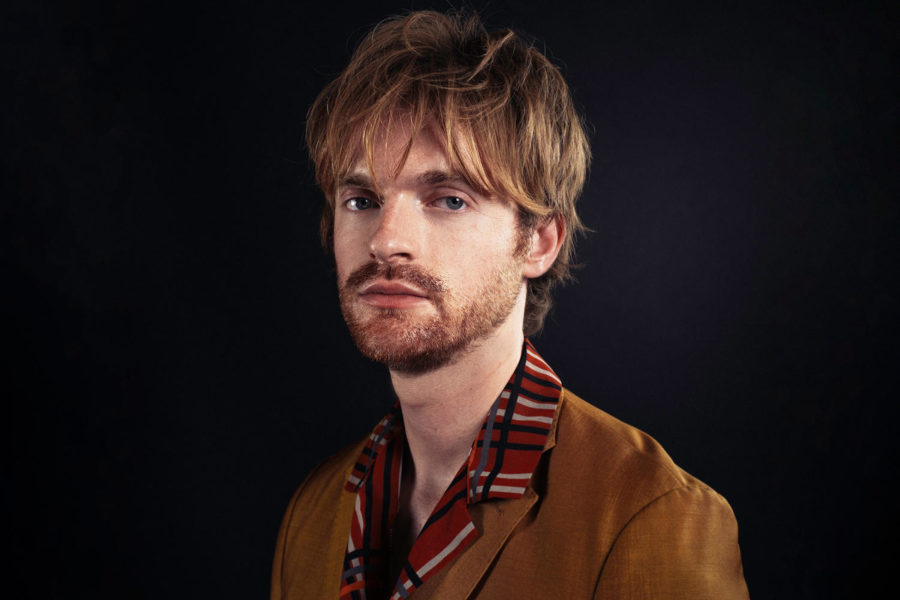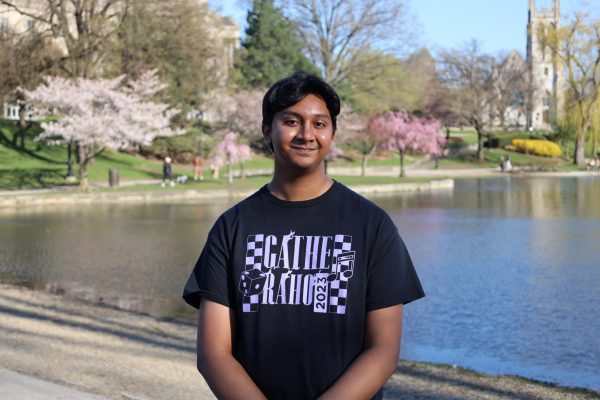“Optimist” demonstrates FINNEAS’ lyrical genius
Witness FINNEAS revive his soloist musical image with “Optimist”
November 5, 2021
Finneas O’Connell has made a name for himself while working in the shadows. Going from “Glee” cast member to five-time Grammy winner, the 24-year-old artist and producer became an immediate pop icon over the course of the past decade. His work with his better-known younger sister, Billie Eilish, has garnered success and acclaim despite most not knowing that he co-writes most of her work.
It would be a missed opportunity, however, for one to overlook his solo creations made under his mononymous moniker, FINNEAS. His first EP, “Blood Harmony,” was a dreamy tribute to life and youthful love, best exemplified by poignant tracks such as “I Lost a Friend” and “Die Alone.” As you listen closely, you begin to witness another side of his writing, showcasing more melancholic and lovesick lyrics in contrast to his work on Eilish’s more introspective, yet brash works.
This might catch new listeners of his off-guard, especially if they were expecting music similar to his work on Eilish’s popular records, such as “bad guy” and “when the party’s over.” By his own account, FINNEAS describes songwriting as an expression of one’s persona, explaining that “if you’re writing and you know that someone else’s voice is going to be the voice telling the story, it should be a language that fits them.”
But now, with the release of his first LP, “Optimist,” we get to witness FINNEAS unfiltered, delivering timeless pop ballads along with more modern and experimental pieces, all laced together by sentimental and droll songwriting.
The first track, “A Concert Six Months From Now,” opens the record with an acoustic ditty playing over a cheering crowd, referring to the revival of live music in recent months, before a sudden beat change moves it into a rock-like epic. In the lyrics “I’ll wait for years but I won’t wait alone / And then someday you’ll wait for my face on your phone,” he fantasizes as he sings of a lost love he’s desperate to find again at the Hollywood Bowl, with a bittersweet feeling emanating from his voice.
A personal favorite of mine is the bossa nova rhythms of “Happy Now,” which contrasts with a dark stream of commentary in the lyrics as FINNEAS complains of the pressures of a swelling sense of fame and a comically joyless life on top. “Aren’t we supposed to be happy now? / There’s nothing left for me to laugh about / I was supposed to be happy now / They’re all so happy for me,” he whines.
When it comes to favorite lyrics, “Love Is Pain” struck me the most, as it invoked the sentimentality of “Blood Harmony” with the dread of reality found on Eilish’s “Halley’s Comet.” With lines like “As you both wordlessly undress / After a fight, it’s getting late / You tried your best, but then she criеd / And you’re to blame / And love is pain,” he makes it clear that the effects of a deep-seated love are chronic.
But if there is one thing that surprises me the most, it’s how FINNEAS effortlessly manages to inject a dose of “woke” into his writing, despite what some critics may have you believe. “The Kids Are All Dying” is a prime example of this move, as he spits truths in falsetto over a “Benny and the Jets” style piano bridge: “I know my pool is heated / Business class is where I’m seated / And I’m whiter than the ivory on these keys,” he admits.
“Optimist,” while not as grandiose as FINNEAS’ better-known efforts alongside Billie Eilish, is worthy of a full listen or two. FINNEAS has delivered a lyrical feast, with sobering yet hopeful vocals and thoughtful writing, all while delivering a unique production that is coherent yet bold. That should not be a surprise, given his track record in the shadows, but whether that can translate into him stepping out for himself remains a mystery. For the time being, “I guess I’m an optimist.”




